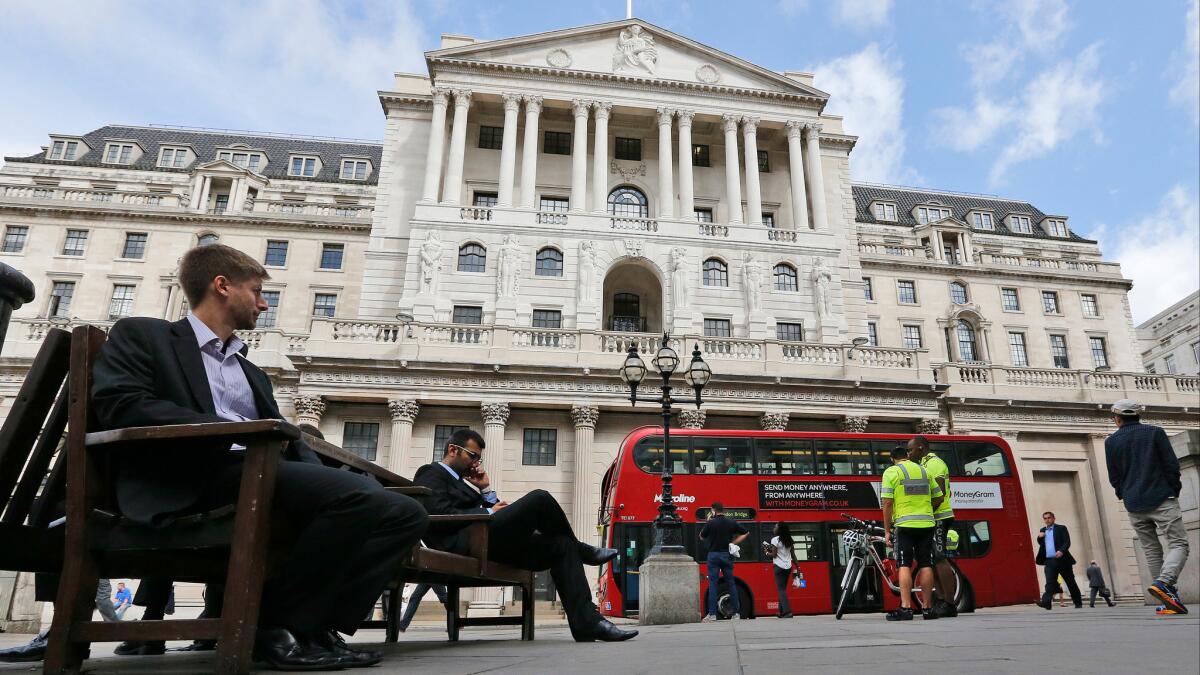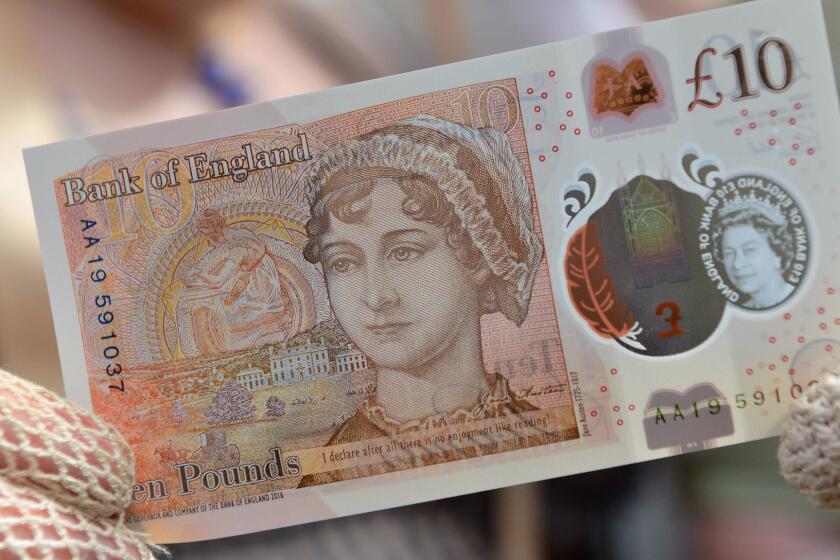Britain’s central bank apologizes for past links to slavery

- Share via
LONDON — The Bank of England has apologized for the links that past governors of the institution had with slavery.
Britain’s central bank called the trade in human beings “an unacceptable part of English history” and pledged not to display any images of former leaders who had any involvement.
“The bank has commenced a thorough review of its collection of images of former governors and directors to ensure none with any such involvement in the slave trade remain on display anywhere in the bank,” the institution said in a statement Friday.
The decision comes after two British companies Thursday promised to support projects assisting minorities after being called out for past roles in the slave trade.
Insurance giant Lloyd’s of London and the pub chain Greene King made the pledges after they were included in a University College London database of companies with ties to the slave trade.
In the wake of the death of George Floyd in Minneapolis, racial equality protests have spread around the world and protesters have taken a stand about the portrayal of people who profited from the slave trade.
Jane Austen has been gone for 200 years, but she’s getting back in circulation.
Protesters in the English city of Bristol hauled down a statue of Edward Colston, a 17th century slave trader and philanthropist, and dumped it in the city’s harbor.
Oxford University has recommended the removal of a statue of Cecil Rhodes, a Victorian imperialist in southern Africa who made a fortune from mines and endowed Oxford’s Rhodes scholarships.
Rhodes is seen as instrumental in paving the way for what later became official white rule in apartheid-era South Africa.
More to Read
Sign up for Essential California
The most important California stories and recommendations in your inbox every morning.
You may occasionally receive promotional content from the Los Angeles Times.










